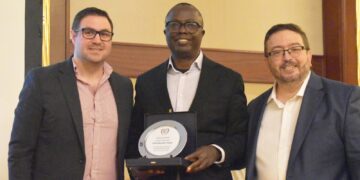A distributor with the International Breweries Plc has dragged the company to the Court of Appeal sitting in Akure, the Ondo State capital, over his dissatisfaction with the judgment delivered on January 25, 2017, by an Osun State High Court, sitting at Ilesha.
The distributor, Faidsam Nigeria Limited, and its Managing g Director, Adelabu Olatunde, has prayed the court for an order directing an unconditional stay of execution of judgment of the Osun State High Court in Suit No: HIL/90/2016 – International Breweries Plc vs Faidsam Nigeria Limited and one other delivered on January 25, 2017, pending the hearing and determination of the applicants’ appeal to the Court of Appeal.
The appellants also asked ghe court for an order of the court, dividing the parties – particularly the International Breweries Plc, from directly or indirectly carrying out or undertaking any act of omission in execution of the judgment, pending the hearing and determination of the applicants’ appeal to Court of Appeal against the judgment.
The appellants prayed the court for an order to allow the appeal, and also sought an order that would set aside the judgment of the trial court.
The appellate court is expected to determine the claims by the appellants that the they have been truly and unduly defrauded to the tune of N23.6million, as well as an outstanding balance of N53million allegedly owed by the appellants.
The alleged fraud of N23.6million was said to have been discovered the account of Faidsam Nigeria Limited within a single year when account reconciliation between the distributor and the International Breweries was done.
The Court of Appeal, among other things is also expected to determine whether the Faidsam Nigeria Limited sold some landed property and other assets with a total of 10,000 empty crates and money equivalent said to have all been remitted to the account of the International Breweries.
The Faidsam Nigeria Limited also contended that if the sum of N23.6million had gone within a single financial year, and how much could have gone in the first three years when the problem allegedly started.















